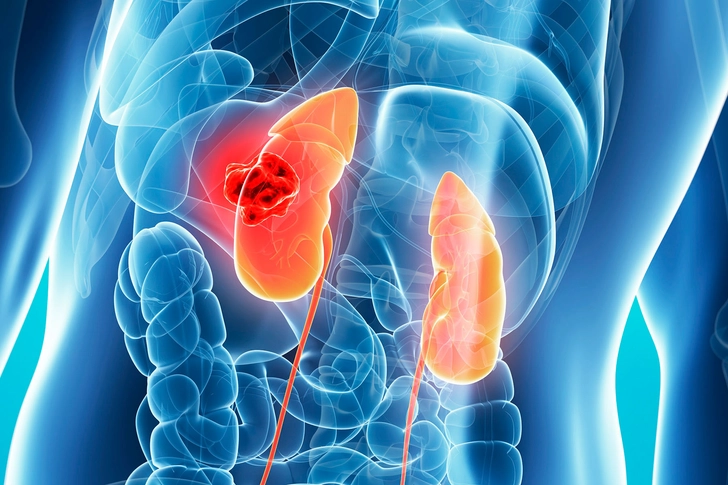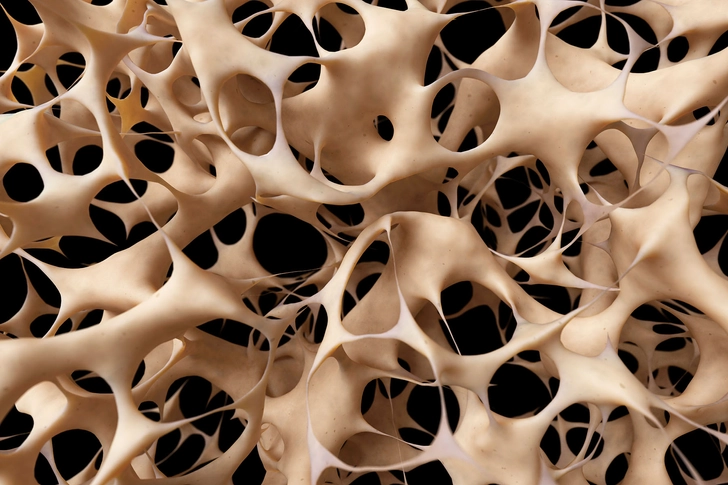Treating and Managing Common Lupus Complications



Cardiovascular Disease
Lupus is a lifelong condition. And over time, it can affect your cardiovascular system. That includes your heart and blood vessels. Lupus and its treatments can also raise your risk of heart attack and stroke. Talk to your doctor about steps to protect your heart. They’ll help you come up with a treatment plan. In the meantime, eat heart-healthy foods and get plenty of exercise. If you smoke, quit.

Other Heart Problems
Lupus can inflame the tissue around your heart, the valves, or the muscle itself. This can trigger chest pain and shortness of breath. A fast or slow heartbeat and swelling are also symptoms. You may get really tired when you’re active. Tell your rheumatologist (lupus doctor) if you have any of these. They may send you to a cardiologist. That’s a heart doctor who’ll help you figure out if lupus or something else is causing your heart trouble.

Kidney Disease
It’s common for kids and adults with lupus to get lupus nephritis. That’s when your immune cells attack the kidneys. Treatment depends on how serious the damage is. You may need to lower the amount of sodium you eat, strong drugs to curb your immune response, or blood pressure meds. If your kidneys stop working, you may need a machine to clean waste from your body (dialysis) or a kidney transplant.

Crooked Joints
Unlike rheumatoid arthritis, lupus usually doesn’t damage your bones. But it can inflame the outer layer of your tendons or ligaments. This can make your fingers or other joints look crooked because you can’t straighten them. A warm shower may loosen things up. Physical therapy and nonsteroidal anti-inflammatory drugs (NSAIDs) may also help. If those aren’t enough, ask your doctor about stronger drugs.

Skin Scarring and Hair Loss
You may form round skin sores, or discoid cutaneous lupus. You might get scars or discolored spots as your skin heals. Your hair might fall out if you get sores on your scalp. Your doctor can give you medication to treat this kind of lupus. That includes oral drugs, corticosteroid shots, or ointments to ease inflammation.

Sun Sensitivity and Rashes
Lupus or lupus medications can make the cells in your skin more sensitive to UV rays. You may get a “butterfly rash.” That's when redness spreads across your cheeks and over your nose. It usually goes away in a few weeks and doesn’t leave scars. But you should wear sunscreen or protective clothing when you’re outside. Ask your doctor how your lupus treatment affects your skin.

Bone Breaks
People with lupus are more likely to get osteoporosis. There are lots of reasons why. The condition itself can lead to bone loss. So can steroid treatment. The good news is there are steps you can take to strengthen your bones. Eat good-for-you foods with enough calcium and vitamin D. Try to stay active. Make sure to add in weight-bearing exercises a couple times a week. And ask your doctor if osteoporosis medication is right for you.

Eye Problems
Trouble with blurry vision or scratchy eyes? Lupus might be to blame. Active inflammation can damage the blood vessels in your retina, which can make it hard to see. Around 20% of people with lupus also get Sjogren’s syndrome, a condition that causes dry eyes. See your ophthalmologist (eye doctor) regularly. Especially if you take hydroxychloroquine. This common lupus drug may affect eye health if you’re on it for a long time.

Lung Problems
Around 50% to 70% of people with lupus may get lung disease. Inflammation in the lining of your lungs can make it hurt to take deep breaths. You might also have tiredness, shortness of breath, or a cough that doesn’t go away. Some meds used to treat lupus may also raise your chances of lung infection or drug-related injury. Your lupus doctor may refer you to a pulmonologist for the best care. That’s a doctor who treats lung problems.

Pregnancy Problems
Most people with lupus can have a successful pregnancy. But the condition raises your odds of a miscarriage or early delivery. Kidney issues and other health problems are also possible. Talk to your lupus doctor if you want to get pregnant. If possible, bring up your baby plans about 3 to 6 months before you start trying to conceive. Your health care team can help you figure out the best way to keep yourself and the baby healthy.

Digestive Symptoms
Lupus can affect the organs that help you break down food. That includes your pancreas, the lining of your belly, and your large intestine. Problems in these areas can lead to serious belly pain, diarrhea, nausea, or throwing up. Lupus meds, including steroids and NSAIDs, can also hurt your stomach. Tell your doctor if you have tummy trouble. They might suggest diet and lifestyle changes along with medical treatment.

Swelling in Your Hands, Lower Limbs, or Eyelids
If you have lupus nephritis, you may notice swelling (edema) in your hands, ankles, or feet. That’s because fluid tends to build up in your body when your kidneys don’t work very well. Lupus that affects your skin may also trigger swelling. It can even make your eyelids puffy. You may need to change what you eat, along with blood pressure and lupus drugs. Kidney treatments to flush out the extra fluid may also be an option.

Seizures
Epilepsy is more common in people with lupus than the general public. The odds seem higher for young people with the autoimmune condition. Experts aren’t sure why lupus triggers seizures. It’s likely due to changes in the central nervous system, which includes your brain. Anti-seizure drugs and immunosuppressive therapy may help you avoid episodes or at least lower the number. Ask your doctor if they’re right for you.

Infection
Lupus and the meds that treat it can make it hard to fight off germs. Commonly, lupus raises your odds of infections that affect your lungs and airways (respiratory system), skin, and urinary tract. Once you get sick, your illness may linger longer than someone without lupus. Call your doctor if you get a fever, a big sign of infection. And stay up to date on your vaccines, including flu and COVID-19.

Vasculitis
Lupus can cause inflammation in all your blood vessels. That’s called vasculitis. Symptoms can be mild (little red spots on your skin) or life-threatening (major organ damage). It depends on what kind of tissue is involved. This isn’t the most common complication of lupus, and it’s not always something to worry about. But you should ask your doctor about it. They’ll let you know if and when you need treatment.
IMAGES PROVIDED BY:
1) Lars Neumann / iStock / Getty Images
2) Ariel Skelley / DigitalVision / Getty Images
3) SEBASTIAN KAULITZKI / Science Photo Library / Getty Images
4) Mohd Hafiez Mohd Razali / EyeEm / Getty Images
5) Biophoto Associates / Science Source
6) ICHIRO / DigitalVision / Getty Images
7) SEBASTIAN KAULITZKI / SCIENCE PHOTO LIBRARY / Getty Images
8) AMR Image / E+ / Getty Images
9) SCIEPRO / SCIENCE PHOTO LIBRARY / Getty Images
10) Oscar Wong / Moment / Getty Images
11) Simon McGil / Moment / Getty Images
12) Toa55 / iStock / Getty Images
13) PIXOLOGICSTUDIO / SCIENCE PHOTO LIBRARY / Getty Images
14) The Good Brigade / DigitalVision / Getty Images
15) DouglasOlivares / iStock / Getty Images
SOURCES:
Expert Opinion on Pharmacotherapy: “Management of cardiovascular disease in patients with systemic lupus erythematosus.”
Johns Hopkins Medicine: “Lupus Complications and Prognosis.”
Lupus Foundation of America: “Lupus and the heart, lungs, and blood,” “How lupus affects the eyes,” “Lupus and Pregnancy,” “Lupus and the digestive system,” “Protecting yourself from infections,” “COVID-19 vaccine and lupus,” “Vasculitis and lupus.”
Lupus UK: “The Joints and Lupus.”
National Institute of Diabetes and Digestive and Kidney Diseases: “Lupus and Kidney Disease (Lupus Nephritis).”
Johns Hopkins Lupus Center: “How Lupus Affects the Body: Arthritis.”
American Academy of Dermatology: “Lupus and Your Skin: Diagnosis and Treatment.”
Cleveland Clinic: “Cutaneous Lupus (Skin Lupus).”
NIH Osteoporosis and Related Bone Diseases National Resource Center: “What People With Lupus Need to Know About Osteoporosis.”
Frontiers in Medicine: “Lupus and the Lungs: The Assessment and Management of Pulmonary Manifestations of Systemic Lupus Erythematosus.”
CDC: “Lupus: Symptoms.”
P&T: “Lupus: An Overview of the Disease and Management Options.”
Seminars in Respiratory and Critical Care Medicine: “Pulmonary Complications of Systemic Lupus Erythematosus.”
UpToDate: “Patient education: Systemic lupus erythematosus.”
Mayo Clinic: “Lupus nephritis.”
Case Reports in Rheumatology: “Systemic Lupus Erythematosus Presented with Bilateral Orbital edema and Negative Serology.”
Neuropsychiatric Disease and Treatment: “Risk of epilepsy in patients with systemic lupus erythematosus – a retrospective cohort study.”
National Institute of Arthritis and Musculoskeletal and Skin Diseases: “Systemic Lupus Erythematosus (Lupus).”
Clinical and Experimental Rheumatology: “Epilepsy in systemic lupus erythematosus.”